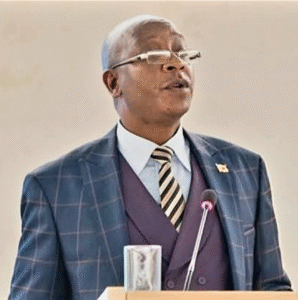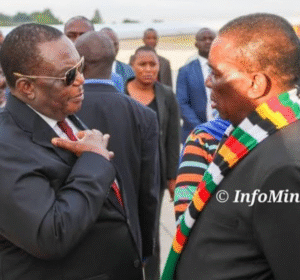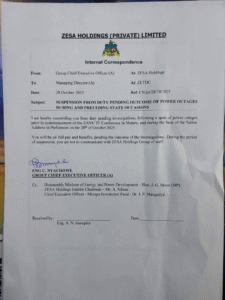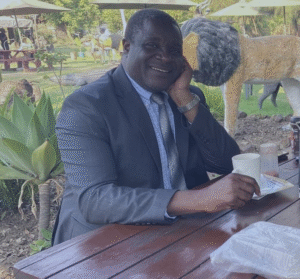ZIMBABWE SPEAKER BLOCKS DEBATE ON PRESIDENT’S CONTROVERSIAL COMMENTS

In a striking display of parliamentary control, Zimbabwean Speaker of Parliament Jacob Mudenda recently halted opposition Citizens Coalition for Change (CCC) MP Gladys Hlatywayo from questioning President Emmerson Mnangagwa’s recent diplomatic faux pas. During a meeting in St. Petersburg with Russian President Vladimir Putin, Mnangagwa characterized Zambia as an American “client state,” sparking tensions between Zimbabwe and its neighbor.
Mnangagwa’s remarks have not only strained diplomatic relations with Zambia and Malawi, which he also labeled as U.S. satellites, but have also coincided with existing tensions over Zimbabwe’s controversial and disputed general elections last August. Despite his comments being widely criticized as undiplomatic and only supported by a section of his supporters and pundits, the implications of his statements are profound, especially as Zimbabwe is slated to assume the chairmanship of the Southern African Development Community (SADC) this August.
In parliament, Hlatywayo, who manages the CCC’s foreign affairs portfolio and was recently ousted from her position in the African Caribbean Pacific-European Union delegation by Mudenda, took the floor to raise this pressing issue. However, her attempt to spotlight the potential risks of such statements on regional security was quickly shut down by Mudenda, asserting that issues of bilateral or regional relations are exclusively the domain of the executive arm of government. This action sparked an immediate backlash from various members, leading to a heated exchange, yet Mudenda remained firm, insisting that such matters are not for parliamentary debate.
This incident highlights a concerning trend in Zimbabwean politics where the separation of powers is under threat, and the parliament’s role in foreign affairs is being minimized. The constitution of Zimbabwe explicitly states that all state and government institutions, including the executive, are accountable to parliament. This includes the President, who is part of the legislature in his capacity as Head of State and holds the public seal.
Despite these constitutional mandates, the executive branch, under Mnangagwa’s leadership, has shown a tendency towards depoliticizing the parliament’s involvement in foreign policy issues, a stance that Mudenda appears to support. By blocking Hlatywayo’s query, Mudenda not only prevented a necessary examination of Mnangagwa’s remarks but also underscored the ongoing challenge within Zimbabwe’s legislative framework, where democratic accountability is often sidelined.
Further complicating the democratic landscape is Mudenda’s recent decision to rescind appointments made by the CCC’s pro-Chamisa faction to portfolio committees in February, aiming to keep a pro-ruling party faction in control. This action followed another controversial move in May, where Mudenda and Zanu PF Chief Whip Pupurai Togarepi opposed the reinstatement of recalled CCC MPs, ignoring a decision by the Inter Parliamentary Union Committee on the Human Rights of Parliamentarians.
Zimbabwe’s constitution establishes a government structured upon three pillars: the executive, the legislature, and the judiciary. These pillars are meant to operate independently while also coordinating to ensure effective governance. However, the recent actions within parliament suggest a significant deviation from this principle, with the executive increasingly isolating itself from legislative scrutiny and accountability.
This ongoing conflict within Zimbabwe’s parliament is more than a domestic issue; it has regional implications, especially as Zimbabwe prepares to lead SADC. The role of parliament in fostering a transparent, accountable governance system is critical, and its erosion could have far-reaching consequences not only for Zimbabwe but for its relations with neighboring countries. As Zimbabwe moves forward, the balancing act between executive authority and legislative oversight remains a pivotal challenge that needs addressing to uphold the tenets of constitutional democracy.




